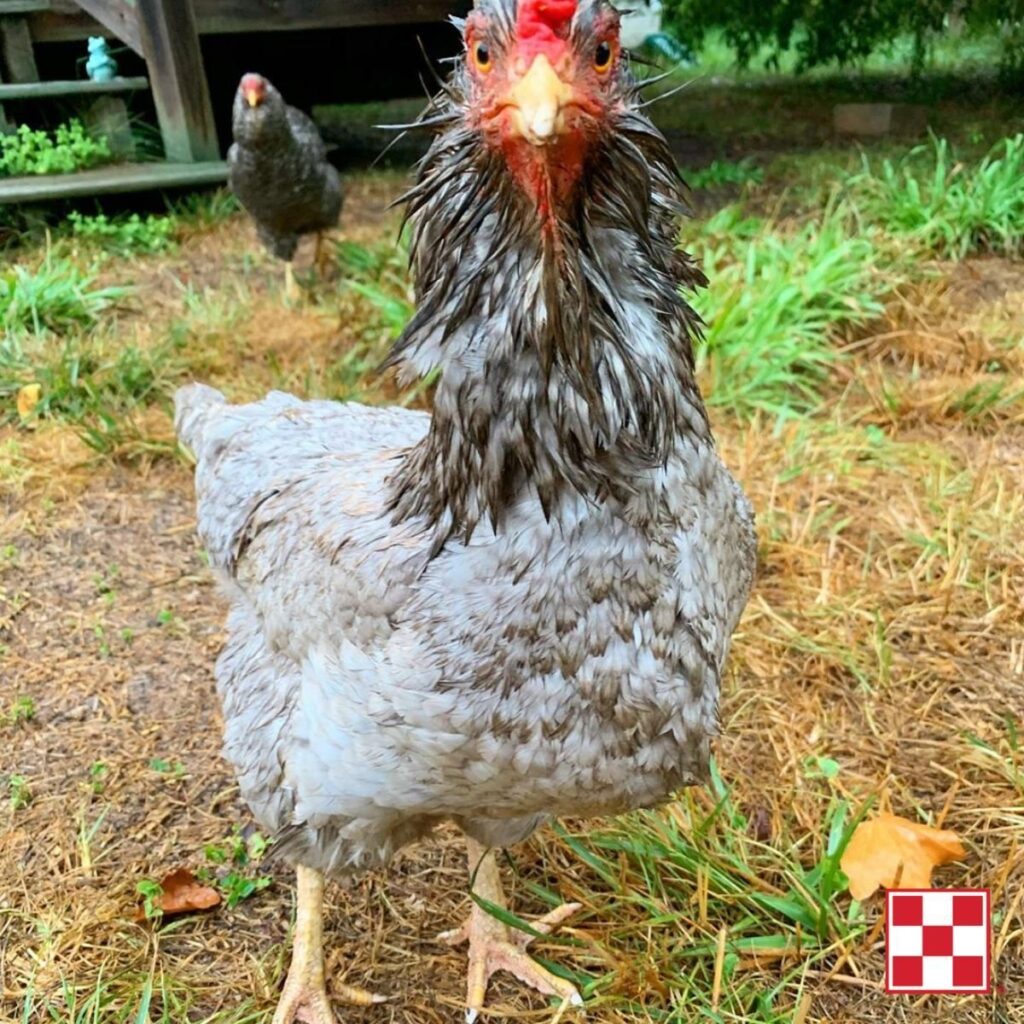 As the autumn months set in, the cooler weather and shorter days will most definitely have an effect on your flock. For starters, chickens tend to eat less during this time, so it’s important for you to take steps to care for your flock as the seasons change. Check out these fall flock tips.
As the autumn months set in, the cooler weather and shorter days will most definitely have an effect on your flock. For starters, chickens tend to eat less during this time, so it’s important for you to take steps to care for your flock as the seasons change. Check out these fall flock tips.
These months are the perfect time to check your coop for any drafts. Not only is cold air unpleasant for us, but it can also cause respiratory issues for your chickens. So, try and spend some time inspecting and sealing any areas that may let cold air in.
Another important aspect of preparing your coop for the colder months ahead is adding extra bedding. As the temperature drops, chickens naturally huddle together to keep warm. Therefore, adding additional bedding will provide extra insulation. Depending on where you live, straw or pine shavings are great options. Be sure to clean out your coop before adding any additional bedding, as this will deter any parasites, like mites from taking up residence in your coop.
It’s important to note that during the winter months, chickens require less feed than they do during the summer months. This is because they will be less active and require less energy to keep warm. Therefore, it’s important to resist the temptation to give them too much food or scratch, as this can lead to weight gain. Instead, opt for a high-quality chicken feed that will provide them with a balanced diet. It’s also important to ensure that clean water is always available, as even a small amount of dehydration can be harmful to your flock.
This is also the time of year that chickens experience molt. As the seasons turn and fall approaches, chicken owners may notice a change in their flock’s appearance and behavior. This is due to an annual biological process called molt, which affects chickens during the cooler months of the year.
What is Molt?
Molt, in simple terms, is when a chicken sheds its old feathers and grows new ones. It’s basically a natural process where the bird renews its plumage, getting rid of all damaged feathers and replacing them with new ones. During molt, feathers fall out and new ones grow in their place. This can take anywhere from a few weeks to a few months, depending on the bird’s age, breed, and overall health. Chickens typically go through their first molt at around 18 months of age and will molt once a year after that.
Why Does Molt Happen?
There are a number of reasons why chickens molt, but the most common reason is that it allows them to maintain a healthy and efficient coat of feathers. A bird’s feathers play a critical role in regulating its body temperature and keeping it dry, which in turn reduces the risk of illness and disease. Over time, feathers can become damaged due to exposure to the elements, and molting is a way for the bird to replace them with new ones.
How Long Does Molt Last?
The duration of molt varies depending on the chicken’s age and health, as well as the amount of stress and nutritional deficiencies they experience. On average, molt lasts anywhere from 3-8 weeks, though it can last up to 4 months. During this time, it’s not uncommon for chickens to stop laying eggs, as their bodies redirect energy towards feather growth instead of egg production.
What Can You Do to Help Your Flock?
While molt is a natural process, there are a few things you can do as a chicken owner to help your flock through this transition period. First and foremost, make sure they have access to a balanced diet rich in protein and other essential nutrients. This will help support feather growth and development. You may also want to provide your birds with a clean and warm living space, as molt can leave them feeling vulnerable and more susceptible to illness. Finally, be patient and understanding as your chickens go through molt. This can be a stressful time for them, and they may exhibit changes in behavior and attitude.
Cooler weather can have a significant impact on your chickens. By checking for drafts, adding extra bedding, and providing your chickens with a healthy diet and clean water, you will be able to protect them from any harm. As always, be sure to monitor your flock’s behavior regularly. With a little bit of effort, you can ensure that your coop and flock are well-prepared and can cozy up together in comfort for the winter months ahead.
